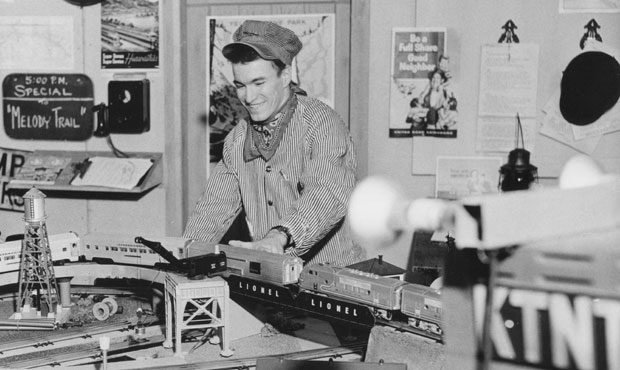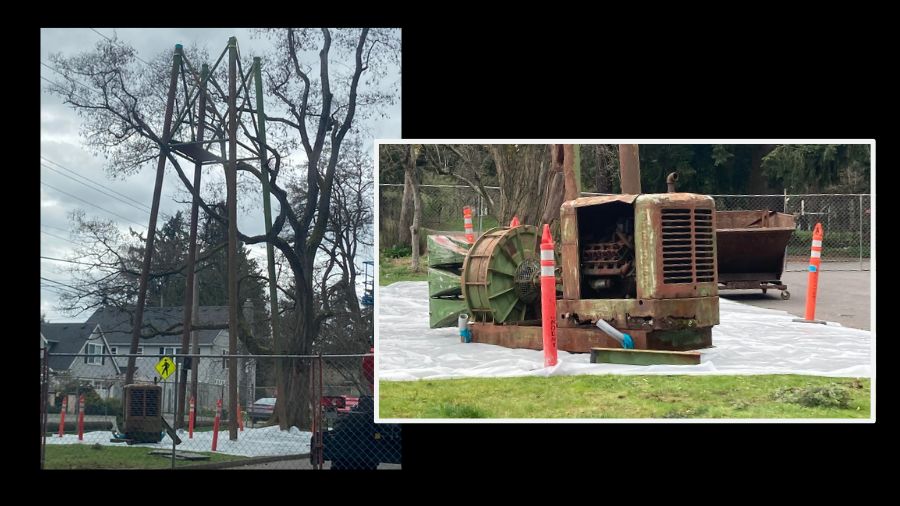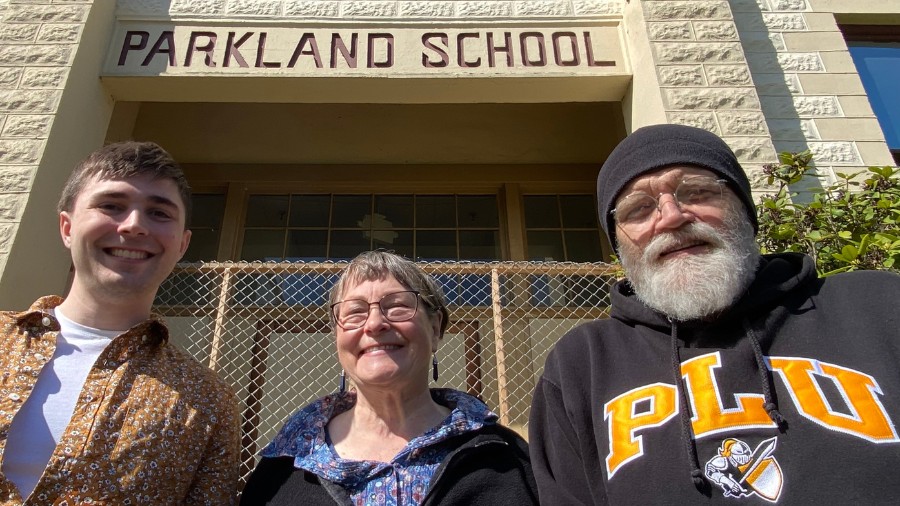Captain Cook’s legacy in the Pacific Northwest
Oct 21, 2020, 10:54 AM

Captain James Cook died in Hawaii in 1779, but his influence and legacy are still felt throughout the Pacific Northwest. (Library of Congress)
(Library of Congress)
Explorer Captain James Cook is remembered by many in his native Great Britain and around the world for his 18th century voyages to the South Pacific. But Cook’s influence is recalled in the Pacific Northwest, too.
David Nicandri is the former director of the Washington State Historical Society. He’s a highly regarded author and historian, and he has a new book just out from University of British Columbia Press called, Captain Cook Rediscovered: Voyaging to the Icy Latitudes.
James Cook was born in England in 1728 – nearly 300 years ago – and died in Hawaii in 1779. His influence in the Pacific Northwest hasn’t exactly been overlooked by historians, but previous published histories have tended to focus more on the tropical aspects of the three voyages Cook commanded for the British Admiralty between 1768 and his death.
Nicandri’s well-researched new volume offers up a number of aspects of Captain James Cook that might surprise many readers.
Nicandri says that Captain Cook sailed more miles in the polar latitudes — both north and south — than he did in the tropics. Because of this, Cook was one of the first people to seriously study glaciers, icebergs, and polar ice.
“He’s the one that first popularized the idea that the icebergs floating around in the Great Southern Ocean are calved off from a landform somewhere,” Nicandri said, namely “South Georgia and the South Sandwich Islands.”
Nicandri says that before Cook, naturalists believed that polar ice caps were made up of fresh water that had frozen on land and moved via river current into the ocean – the early naturalists didn’t think sea water could freeze.
“Cook was the one that demolished that idea because of the southern hemisphere,” Nicandri said. “There wasn’t enough land, there are indeed no rivers that can populate the southern ocean with ice, and Cook was the one that figured that salt water must, in fact, freeze on its own.”
But Cook rarely gets recognized for these, er, chilling discoveries.
“He’s not generally credited as being the pioneering ice scientist, but in fact, the initial polar ice scientist and glaciologist was Captain James Cook,” Nicandri said, though he’s “better known and associated with palm trees and sandy beaches.”
And speaking of those palm trees and sandy beaches, Cook was just 50 years old when, while leading his third voyage, he died in a violent skirmish with native Hawaiians on the beach at Kealakekua Bay. Nicandri’s research shows that before that bloody day on the Big Island in February 1779, James Cook had already escaped death in similar circumstances more than a few times before.
“He could have died at any point during each of the three voyages,” Nicandri said. “The numbers just kind of caught up with him eventually.”
But 18th century Londoners, who didn’t learn of Cook’s death for nearly a year after it happened, weren’t necessarily fazed by the news.
“There’s an interesting quote,” Nicandri said. “When news of Cook’s death finally reached London in January 1780, one of the early letters to the editor or columnists in the London press went to say the surprising thing isn’t that Cook died on the third voyage, it’s that he lived as long as he did.”
But even in death, James Cook continued to exert influence, and his legacy had long-lasting effects in the Pacific Northwest.
Many even casual students of Northwest history recall that a young George Vancouver — who would explore and name Puget Sound (and many other geographic features) in 1792 — was a member of the crew on Captain Cook’s second and third voyage.
Nicandri says that the future Captain Vancouver learned a lot from sailing with Captain Cook.
Under Cook’s leadership at sea, Nicandri says, “there was kind of a ‘floating school of midshipmen,’ which was Vancouver’s initial role sailing with Cook, and so he would learn how to manage a ship, he would learn the science and the exactitude of navigation and charting, and so forth.”
But Nicandri says there are misperceptions linking Vancouver’s voyage to the Northwest Coast in 1792 to what Captain Cook did – and didn’t – accomplish some 15 years earlier.
“It’s commonly perceived that Vancouver was sent out to kind of make up for some shortcomings that Cook was responsible for on the third voyage,” Nicandri said. “It’s usually put that Cook missed the Columbia River [and] he missed the Strait of Juan de Fuca. But Cook was sent to 65 degrees” – far, far north of what’s now Washington – “before he was even to begin to search, so a river that fell out at the 46th parallel or the Strait of Juan de Fuca between 47 and 48 [degrees north], they are of no consequence to him and his mission, given his fidelity to mission, because he knew inevitably they would be a dead end.”
Nicandri says Captain Cook wasn’t concerned with searching for anything south of 65 degrees north latitude; his instructions and his objective was to determine if a passage by sea existed across the top of North America. When he sailed for the Northwest Coast more than a decade later, Nicandri says, Captain George Vancouver was on an entirely different mission, to explore, survey, and lay claim to the coastal waters of what’s now the Pacific Northwest.
And along with Vancouver’s explorations here, the Corps of Discovery – the Lewis & Clark expedition of the early 1800s – is another chapter of great historical consequence for the Pacific Northwest and for the United States that arguably contains traces of Captain Cook’s DNA.
Nicandri says that the long shadow of James Cook influenced both the mission of that famous and near-mythic American expedition, as well as how it’s been remembered and acclaimed ever since.
“Thomas Jefferson’s instructions for Meriwether Lewis were, I’ll say ‘cribbed,’ but certainly [Jefferson] borrowed heavily from the (British) Admiralty’s published account of Cook’s instructions from his first, second, and third voyage,” Nicandri said.
And, after his death, says Nicandri, “Cook’s memorialist refers to his ‘courage undaunted,’ which is a resonant phrase within the world of Lewis and Clark, because Jefferson later used it in his memorial because of Lewis’ untimely death, and, of course, Stephen Ambrose famously interpolated it into ‘undaunted courage’ for his famous book about the Lewis and Clark expedition.”
Captain Cook Rediscovered is out just in time for holiday gift giving, and it’s the first of three books by Nicandri that will be published in the year or so ahead.
In nine years of research and writing, Nicandri says he got a pretty good feel for James Cook’s personality and character, and for what drove him on his three voyages.
“It was his grittiness, it was his faithfulness to mission to keep grinding it out,” Nicandri said. “People on his voyages” – members of the crew – “got tired of exploration uniformly far before Captain Cook did, which is why the legend that’s grown up is that Cook was kind of tired, and wasn’t the explorer he had been on his first two voyages, [and] which is why the third ended for him as tragically as it did.”
“I think that’s a myth,” Nicandri said. “I think I can prove in this book that Cook was as diligent and as vigorous an explorer on the third voyage as he was at any time in his career.”
With a new book out and two more on the way, the same might be said of David Nicandri.
While researching and writing, “I would try to take a weekend off just so I could enjoy retirement,” Nicandri said. “But like Captain Cook, if we just simply work at something long enough, like in my case, nine years for this book, it’s actually remarkable how much you can get done.”
You can hear Feliks every Wednesday and Friday morning on Seattle’s Morning News and read more from him here. If you have a story idea, please email Feliks here.













